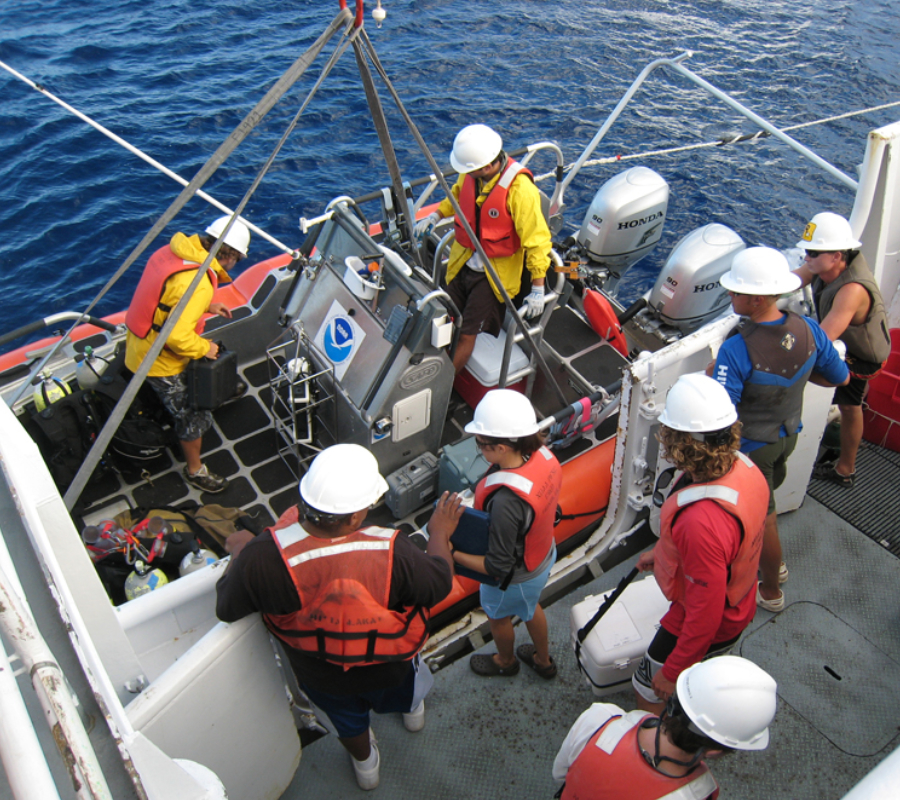A National Oceanic and Atmospheric Administration’s controversial paper published in 2015 concluded there was no detectable slowdown in ocean warming over the previous 15 years, proving that the “global warming hiatus” never existed.
Agencies had been using old-fashioned ways to measure water temperatures, which led to wrong data. Global warming skeptics have been attacking NOAA after they published their findings more than a year ago in the journal Science because the global warming hiatus was their recurrent argument when denying climate change. Controversy surfaced once again after a new study published Wednesday in Science Advances confirmed that NOAA correctly adjusted their ocean temperatures record.

The research was led by Zeke Hausfather, a Ph.D. student at the University of California-Berkeley and a researcher with Berkeley Earth, a nonprofit association that has reanalyzed Earth’s temperatures, proving NOAA’s 2015 results are accurate.
The new study used independent data from satellites, as well as buoys and Argo floats. Hausfather completed the study with NASA, scientists based at York University in the U.K., George Mason University, and independent researchers.
Apart from confirming NOAA’s findings, the research also encourages that other global temperatures datasets should readjust known biases to get reliable data.
“Our results mean that essentially NOAA got it right, that they were not cooking the books,” said Hausfather.
Correcting how ocean’s temperatures are measured
Before satellites and buoys, mariners measured the ocean’s temperatures using a bucket to collect ocean water and sticking a thermometer in it. In the 1950s, a new method was applied: ship’s automatically measured water piped through the engine room, although that water was typically warm.
Buoys came later and they started replacing ship data. Buoys are located throughout the oceans and report cooler temperatures because they measure water directly from the ocean, which does not pass through a warm engine room.
NOAA’s controversial study was an attempt to accurately combine ship measurements and buoys data to calculate ocean’s actual temperatures. The agency is one of the three organizations that keep historical records of ocean temperatures, which is essential information for climate modelers and the study of climate change.
Zeke Hausfather and colleagues used different instruments to see if NOAA’s recent findings were correct but there were two questions to be answered regarding those instruments: How do you weight the results of one apparatus versus the other one and how do you adjust for the transition from one to another?
Hausfather and his team decided to create a temperature record for each instrument to avoid mixing and matching information from the satellites, buoys and Argo floats, which are battery-powered autonomous floats that collect high-quality temperatures from the upper 2,000 meters of the ice-free global ocean and currents from intermediate depths.
The study found that each instrument’s data matched NOAA’s results, supporting that oceans warmed 0.22 degrees Fahrenheit (0.12 degrees Celsius) per decade since 2000, nearly twice as fast as earlier estimates of 0.07 degrees Celsius per decade.
NOAA’s 2015 results also accounted for changing shipping routes and measurements techniques. The agency used buoys and ship measurements combined, which Hausfather said is an accurate way to correct the second bias.
NOAA’s recent results lined with estimates obtained between 1970 and 1999, solving the global warming hiatus puzzle. Hausfather’s efforts prove the agency’s work.
“In the grand scheme of things, the main implication of our study is on the hiatus, which many people have focused on, claiming that global warming has slowed greatly or even stopped. Based on our analysis, a good portion of that apparent slowdown in warming was due to biases in the ship records,” Hausfather said.
Mark Richardson of NASA’s Jet Propulsion Laboratory and the California Institute of Technology in Pasadena and co-author of the UC study added that satellites and Argo floats are independent witnesses of recent ocean warming and that their testimony matches the NOAA’s results.
Thomas Peterson, one of the authors of the NOAA 2015 study told the Washington Post that given how rigorously he and his colleagues evaluated their work on ocean temperatures, the results of the UC study are not surprising although he admitted they are gratifying.
Climate change skeptics refused to accept NOAA’s new data without a fight
The global warming hiatus was an apparent slowdown in rising surface temperatures between 1998 and 2012. Many scientists supported the idea since data pointed to a halt on raising ocean temperatures. Even the International Panel on Climate Change acknowledged the puzzling hiatus.
NOAA’s new findings led a House Representatives committee to subpoena the scientists’ emails. Rep. Lamar Smith, chair of the House Committee on Science stated that NOAA’s results proving that global warming has not stopped in the last decades have brought national implications.

The agency agreed to provide information and clarify any scientific question about the article but refused to comply with the subpoena. Scientists supported NOAA’s decision who feared political inquisitions.
Source: University of California
